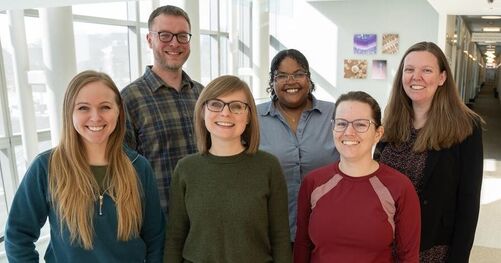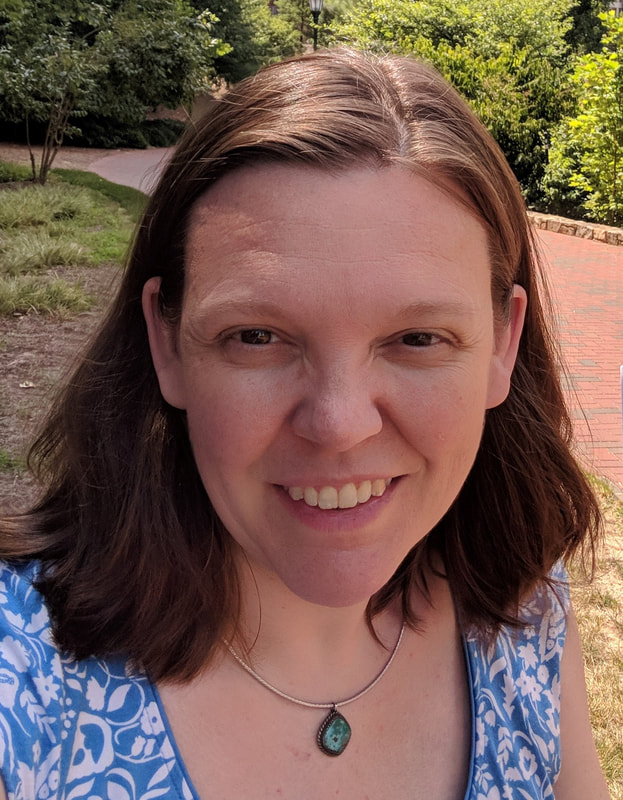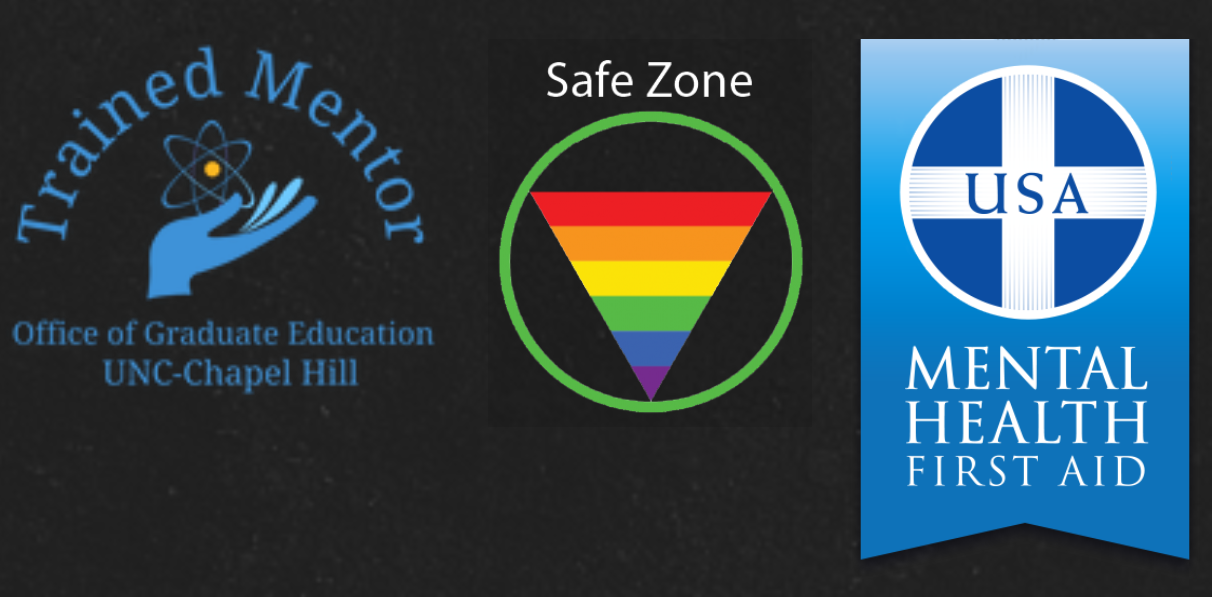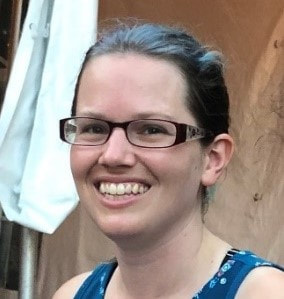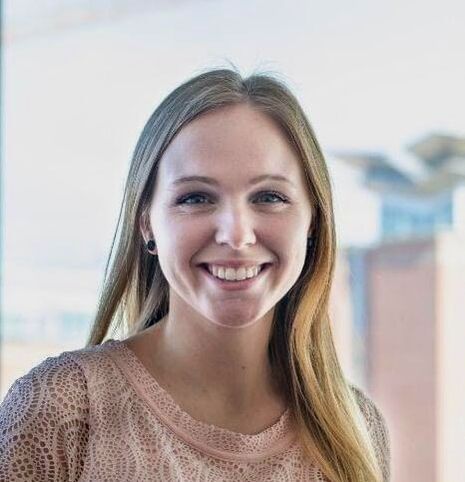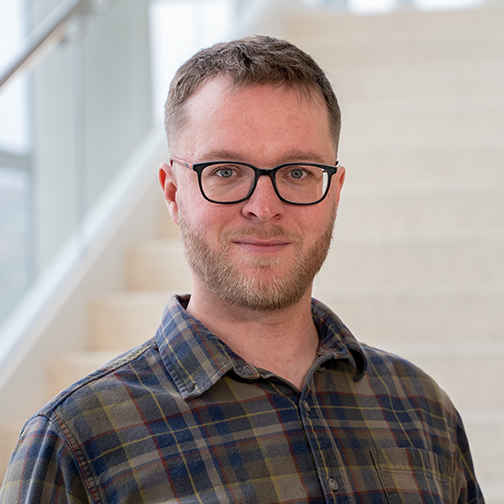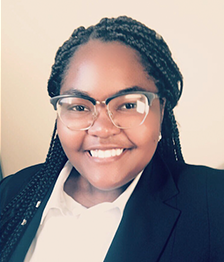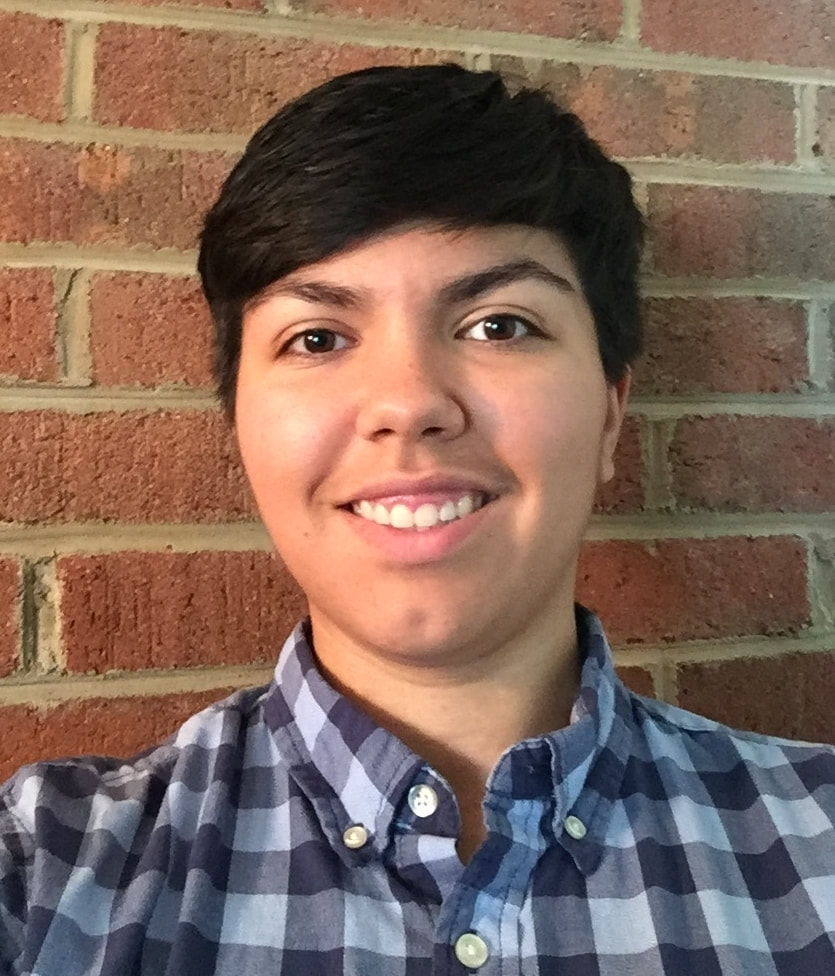Principal Investigator
|
Elizabeth Shank
[email protected] Postdoctoral Fellow Harvard Medical School Ph.D. 2004 University of California, Berkeley B.S. 1998 Pennsylvania State University |
I am interested in understanding how compounds secreted by microbes affect the physiology, metabolism, and survival of their microbial neighbors, and how such interactions influence the stability and dynamics of complex microbial communities. I became interested in these questions when spending a month as an undergraduate REU student at the Bermuda Biological Station for Research, where I studied the interactions between sea anemones and their dinoflagellate symbionts. I then elected to do my graduate work in protein biochemistry and biophysics, where I studied how single protein molecules unfold and refold under mechanical stress in the lab of Susan Marqusee. I returned to microbial interactions during my postdoctoral work with Roberto Kolter, laying the foundation for the questions my lab is now pursuing. My primary role in the lab is as an idea generator, experimental advisor, collaboration initiator, professional mentor, and grant-writer.
|
Postdoctoral Researchers
|
Katarzyna (Kasia) Dubiel [email protected] Ph.D. 2019 University of Wisconsin - Madison B.S. 2014 University of Illinois at Urbana-Champaign |
I earned my PhD in Biochemistry from the University of Wisconsin – Madison. My graduate work in the Keck lab investigated genome maintenance processes in E. coli using protein biochemistry and structural biology. In the Shank lab, I will be examining bacterial heterogeneity and communication using combinations of cell biology, genetics, and microscopy. In my spare time, I enjoy going to concerts, sampling beer, and reading. |
|
My research is focused at the intersection of bacterial physiology, genetics, metabolism, and biofilm formation. My postdoctoral research projects focus on both soil and intestinal microbiota and how microbes interact with each other within these complex environments. I am interested in how diverse Bacilli and their specialized metabolites impact the gene expression and physiology of intestinal symbionts and pathogens. From a soil perspective, I am interested in how environmentally available carbon sources shape gene expression, metabolism, and biofilm formation in Bacillus subtilis and how these alterations impact interactions with other members of soil microbial communities. Furthermore, I am involved in a large multi-lab collaboration between the Shank, Klepac-Ceraj (Wellesley), Riveros-Iregui (UNC), and Leon-Reyes (USFQ) labs examining how invasive species and climate interact to alter soil microbial ecology within distinct microclimates on the Galápagos island of San Cristóbal. When not doing science, I enjoy hiking, climbing, skiing, and board games.
|
|
Rachel Neve [email protected] Ph.D. 2021 University of Colorado Anschutz Medical Campus B.S. 2015 University of Wisconsin - La Crosse |
I am interested in how metabolites shape microbial ecology across ecosystems. My PhD work in the Lab of Vanessa Phelan focused on measuring virulence-associated secondary metabolites made by the opportunistic pathogen Pseudomonas aeruginosa in the context of cystic fibrosis lung infections. As a postdoc, I am now using metabolomics to investigate the mechanisms underlying a number of microbial phenotypes and bacterial interactions, such as the coordination of Bacillus subtilis specialized metabolite production over time and under different conditions, interspecies interactions between soil microbes, and gut microbial colonization. In my free time, I enjoy traveling, baking, making crafts, and spending time with friends, family, and my dog, Rosie.
|
Graduate Student Researchers
|
Soil is a complex and dynamic ecosystem where organisms cooperate and compete for resources. In the Shank lab I will be working to elucidate the mechanisms by which members of the soil microbiome communicate with one another, specifically looking at the role secondary metabolites play in inter-cellular communication. I’m also interested in the mechanisms of phenotypic heritability among bacteria. I’ll be studying these mechanisms using Bacillus subtilis as a model organism. |
Amina Bradley
|
Microbial specialized metabolites are structurally complex natural products that have been a rich source of therapeutics for decades. These diverse molecules are often employed as bacterial cell-cell signals and can provide microbes with a selective advantage in competitive environments. The machinery required to manufacture these specialized metabolites is encoded by biosynthetic gene clusters (BGCs). Most BGCs are 'silent' or not expressed under typical laboratory conditions, leaving a vase repertoire of biosynthetic potential untapped. The objective of my research is to exploit bacterial coculture to activate silent BGC expression in Bacilli, a metabolically under-explored genus. I am using a combinatorial approach leveraging bioinformatics, transcriptomics, and metaboloimcs to elicit uncharacterized bioactive specialzied metabolites.
|
|
For my Masters I studied the evolutionary history of immunomodulatory genes of giant viruses in the Aylward lab at Virginia Tech. During that time I did an internship with NASA, which increased my interest in space biology and omics approaches. I am interested in the complex interplay between communities of microorganisms, their hosts, and their environments. When I'm not in lab, I enjoy playing board games, going on adventures, and trying out new restaurants.
|
